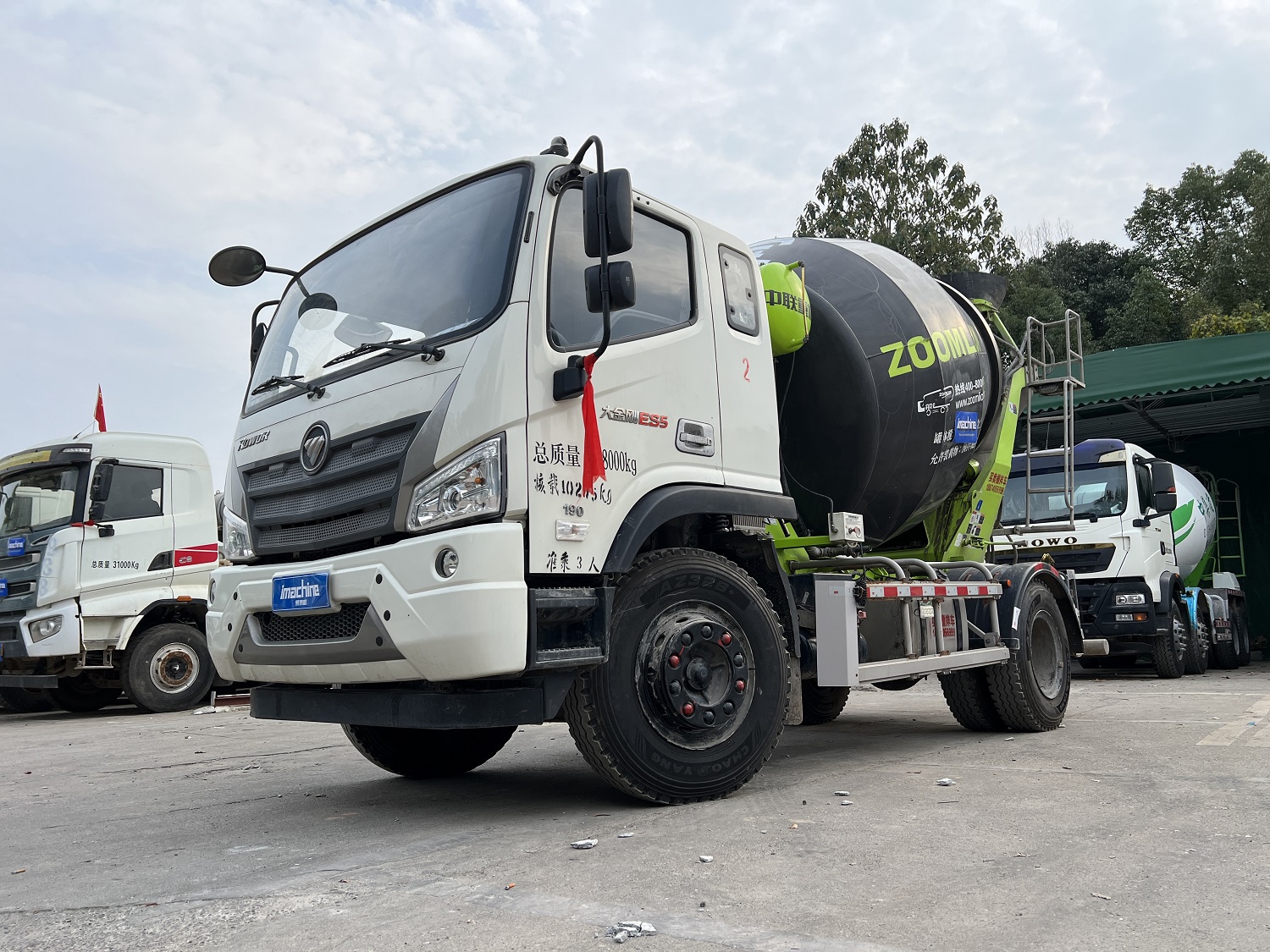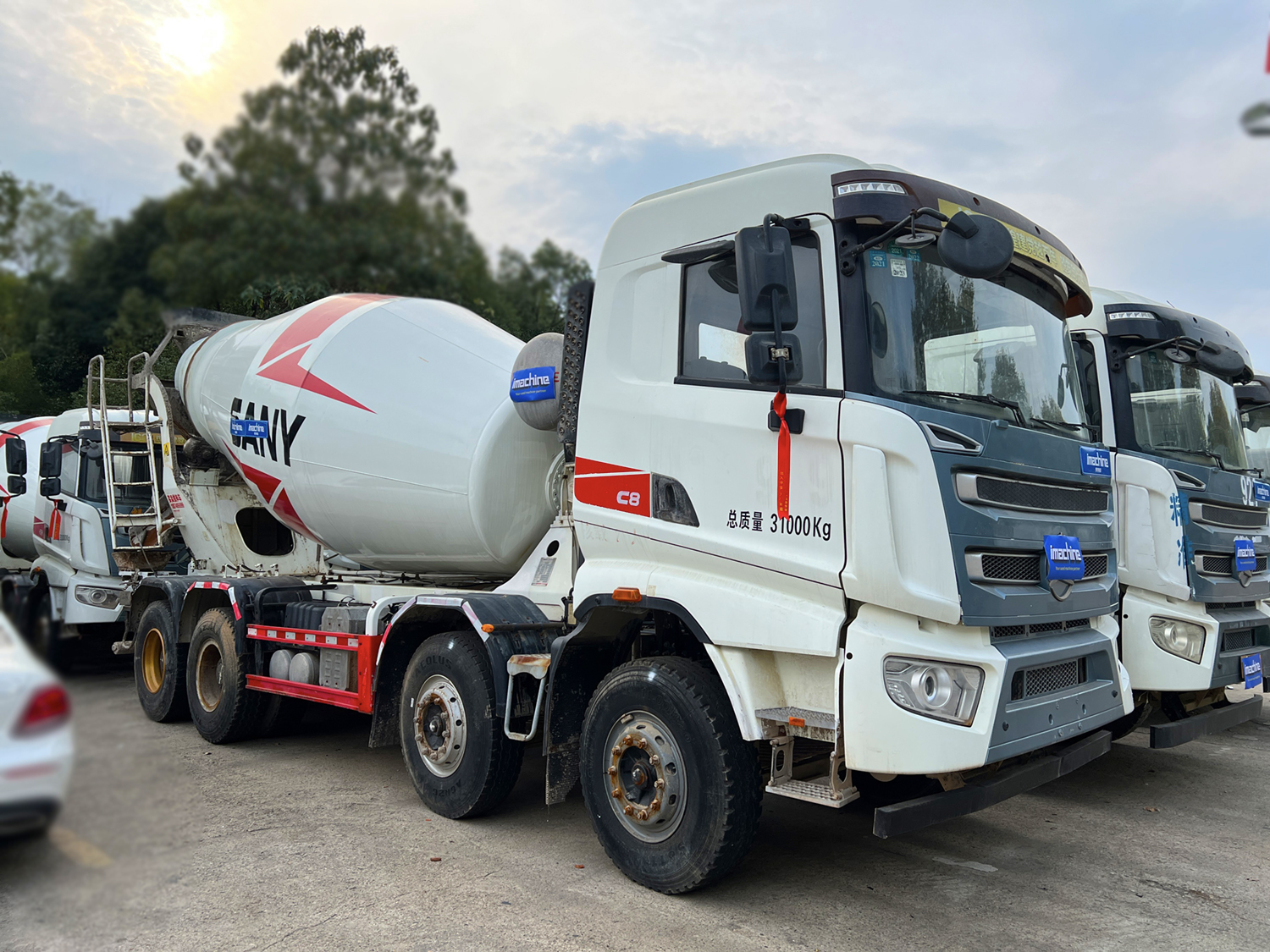
Concrete mixer trucks are robust pieces of engineering machinery with high reliability requirements. To ensure their efficient operation, regular maintenance is crucial.
1. Initial Inspection for New Vehicles
For newly purchased vehicles, around 50 hours of initial usage, it’s essential to inspect the tightness of various bolts. This includes the connection bolts between the tank head and the gearbox, the gearbox base and the front frame, the trailer base and the chassis, as well as the connection bolts between the sub-beam and the main beam. Subsequently, regular monthly inspections are necessary.
2. Lubrication Checks Before Operation
Before each day’s operation, check the lubrication oil on the mating surface of the support wheel and roller. If it’s dry, promptly replenish it to maintain effective lubrication.
3. Pre-Start Oil Level Check
Prior to starting the vehicle, inspect the oil levels in the radiator and gearbox to ensure they are within the visible range.

4. Hydraulic System Inspection
Check the sealing of the hydraulic oil circuit, maintaining cleanliness and sealing to prevent contamination by dust and moisture, which could impair the system’s normal functioning or cause damage.
5. Bolt Fastening and Safety Checks
Regularly check the fastening bolts of pipelines and hydraulic equipment to ensure equipment safety, replacing bolts when necessary.
6. Radiator and Temperature Control Maintenance
Regularly inspect the performance of the radiator fan and temperature control switch to ensure they function properly. The oil temperature should generally be around 65°C, and the fan should automatically activate.
7. Pressure Gauge Monitoring
Monitor the pressure gauge on the radiator; when the pointer is in the red zone, replace the filter, and even if the pointer is not in the red zone, replace the filter promptly if it has been in use for more than a year.
8. Monthly Debris Cleaning
Clean the debris on the support wheel and roller at least once a month. Inject lubricating grease into the support wheel through the oil nozzle. Ensure the drive shaft is lubricated at least once a month.
9. Hydraulic System Maintenance
The hydraulic system components are precise but require high maintenance. Hydraulic oil should be changed regularly, initially after 500 hours of operation, and subsequently every 2000 hours or at least once a year. The filter should be replaced simultaneously.
10. Post-Oil Change Checks
After an oil change, check the sealing performance of the hydraulic system and re-tighten all bolts, replacing sealing elements if necessary. It is strictly prohibited to use substandard or different grades of hydraulic oil.
11. Engine Idle Check
After refilling with new oil, let the engine idle for 15 minutes with the mixing drum not turning to check if the oil level is appropriate.
Regular and thorough maintenance is paramount for ensuring the efficiency and reliability of concrete mixer trucks. By adhering to a comprehensive maintenance routine, including bolt inspections, lubrication checks, and systematic examinations of crucial components, operators can mitigate the risk of unexpected breakdowns and enhance the overall lifespan of the equipment. Paying close attention to details such as oil levels, hydraulic system integrity, and radiator performance contributes significantly to the seamless operation of concrete mixer trucks. Remember, a well-maintained fleet not only performs optimally but also ensures a safer working environment for everyone involved in the construction process.
Post time: Dec-06-2023





